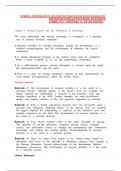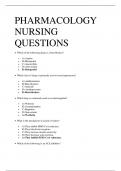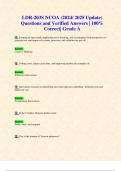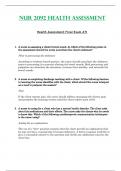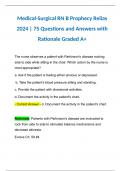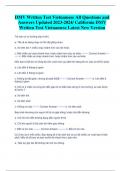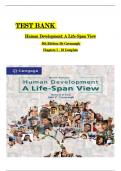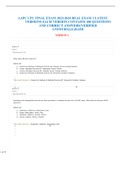Exam (elaborations)
MENTAL HEALTH CMS ATI EXAM WITH ACCURATE EXAM QUESTIONS AND 100% CORRECT ANSWERS/ ATI MENTAL HEALTH CMS EXAM ACTUAL EXAM /ALREADY GRADED A+
- Module
- Institution
- Book
MENTAL HEALTH CMS ATI EXAM WITH ACCURATE EXAM QUESTIONS AND 100% CORRECT ANSWERS/ ATI MENTAL HEALTH CMS EXAM ACTUAL EXAM /ALREADY GRADED A+
[Show more]




